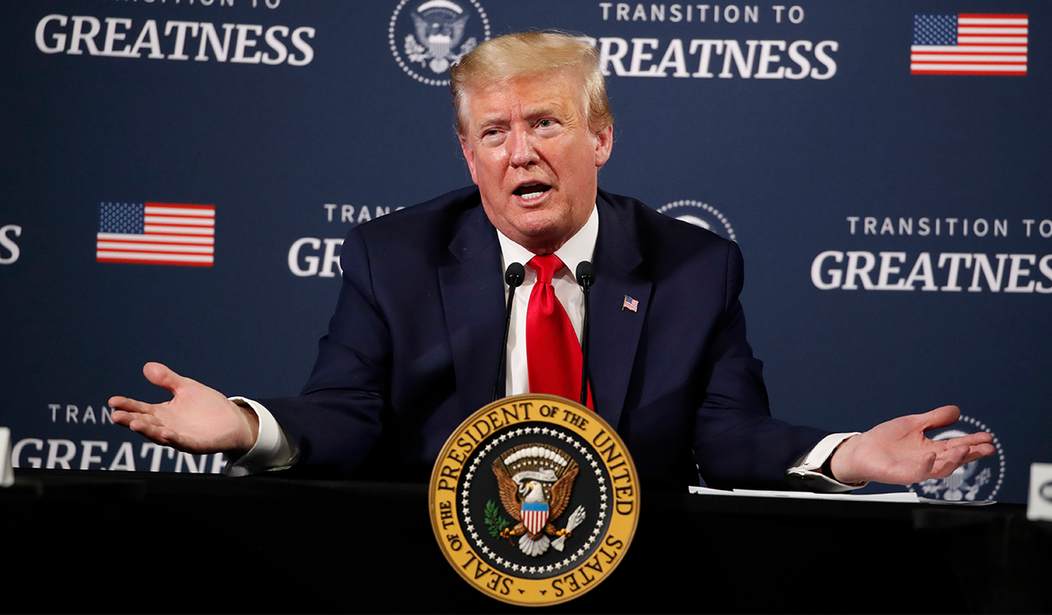"Stay shut or open up" is the current political argument. In its most simplistic form, it's painted as a choice between saving lives (stay shut) or helping the economy (open up). As with many supposedly two-choice options, it's both false and ill-framed. Just remember: When people give you two choices -- it's often a sign that they have not thought deeply enough about the problem and potential solutions -- there are often many potential solutions.
Yes, we can focus on both saving lives and restarting the economy.
In early February, just as COVID-19 was being tracked as moving out of China and into other countries, I traveled to Korea. I had debated whether I should cancel my trip. It seemed to be a simple two-choice decision -- go; no go. Instead, I chose a third option. I decided to travel with an N-95 mask and a container full of Lysol wipes. I wiped down the interior of the plane where I was sitting, wore my mask while in the airport and wiped all the surfaces in the hotel room. This was go -- while taking precautions to mitigate risk.
While not everyone wore a mask while I was in Korea, most did. When I walked into a hotel for lunch, a computer scanned my body temperature, and it was double-checked by a masked attendant using a thermometer on my wrist.
I shook hands -- but rarely. I washed my hands often and used hand sanitizer before eating. I skipped the shared breadbasket for reasons other than lightening up on carbohydrates.
I made it home more knowledgeable about Korea and with new friends, much richer from the experience.
A few days later, my husband and our two children were holed up in various parts of our home, learning and working through technology. The shutdown had begun.
Decades from now, when the data can be analyzed with more detachment and less emotion, I believe that we will regard our reaction to COVID-19 as ill-informed and, well, reactionary, rather than thoughtful and useful. We decided there were two options. In our current political environment, one that is fueled by emotion, rage and judgment, a gut reaction, rather than thoughtful response, might be what we deserve.
Recommended
This week, Avik Roy published an article in Forbes titled "43% of COVID-19 Deaths Are in Nursing Homes & Assisted Living Facilities Housing 0.6% Of U.S." Roy was referencing a study he completed with Gregg Girvan for the Foundation for Research on Equal Opportunity. It's rare to find a title that is informative and cuts cleanly to the takeaway of the author's work. While we have heard that older people are more susceptible than others to COVID-19, we now know that age is not the only risk factor: Those who live in nursing homes and assisted living facilities (2.1 million Americans) die in greater percentages than those who live elsewhere, including those of the same age.
Yes, they may have been more fragile and in worse health to begin with, but they also shared space and staff with others. As we move forward, we should use this data to inform ourselves on how to better screen visitors, workers and patients in these settings. We also now know that the shutdown has had many unintended negative consequences on health -- missed health checkups, anxiety, weight gain, etc.
We know that the coronavirus is highly contagious. So, too, are optimism, courage and action. We should be optimistic about the future. Americans have historically been inventive, creative and persistent. We often fail -- but we always get back up and try again. Let's encourage one another to try to find another way if the first is not working, rather than yell at those who have failed. We should encourage ingenuity and action. We should be courageous and speak our mind -- but more importantly, to listen to others without attacking them. Listening does not mean you agree with them, just that you respect them and understand they have a right to their opinion. This should be true especially if you believe they may be wrong. They have as much right to be wrong as any other American.
As for action, we definitely need to take action, but we need to base that action on what we have learned. Yes, we should venture out into the world while taking precautions, mitigating risk. It's not a one-size-fits-all process -- and we can't all stay home forever. There is always a third, fourth or fifth option. We just have to figure them out.
To find out more about Jackie Gingrich Cushman, and read features by other Creators Syndicate writers and cartoonists, visit www.creators.com.

























Join the conversation as a VIP Member